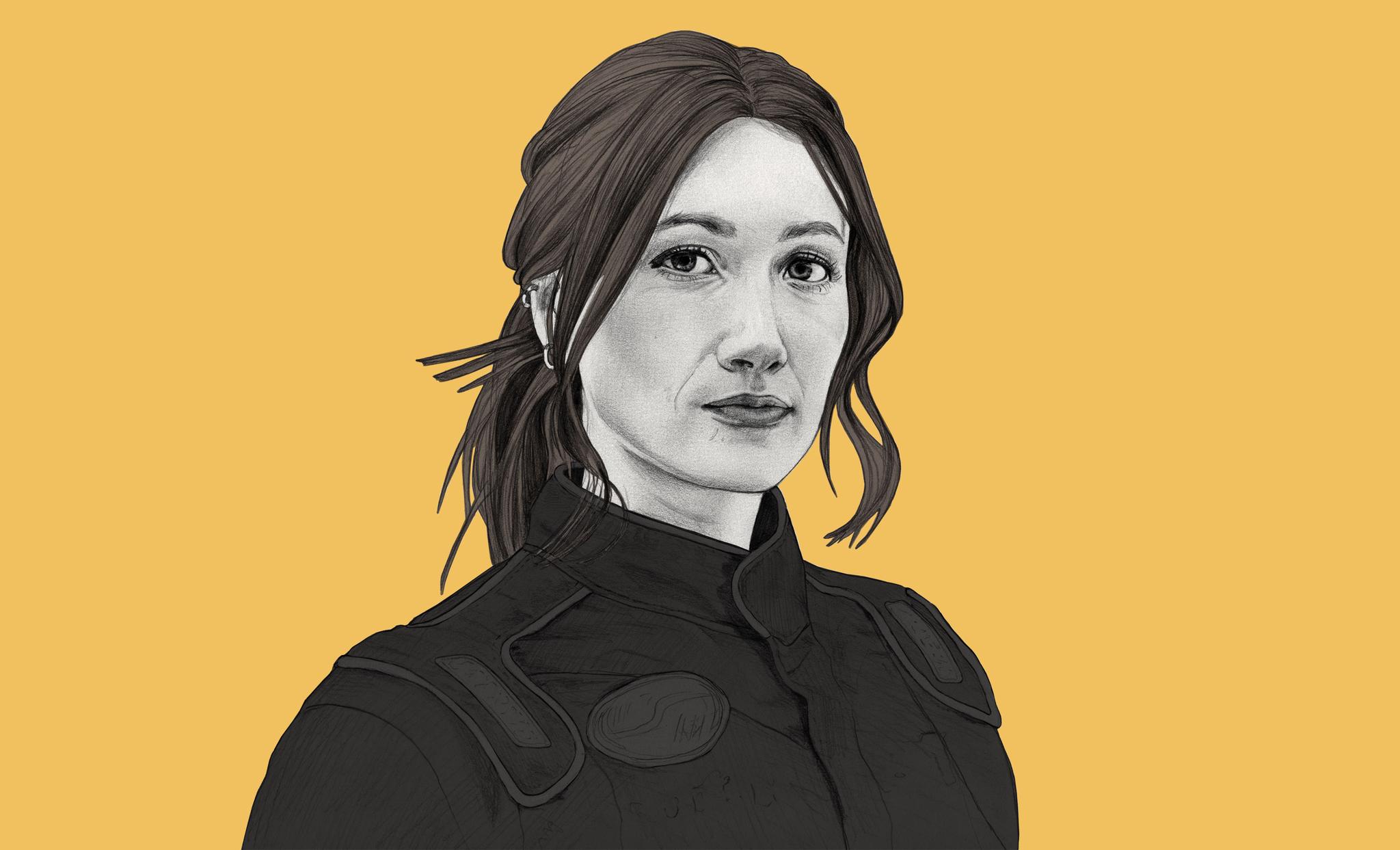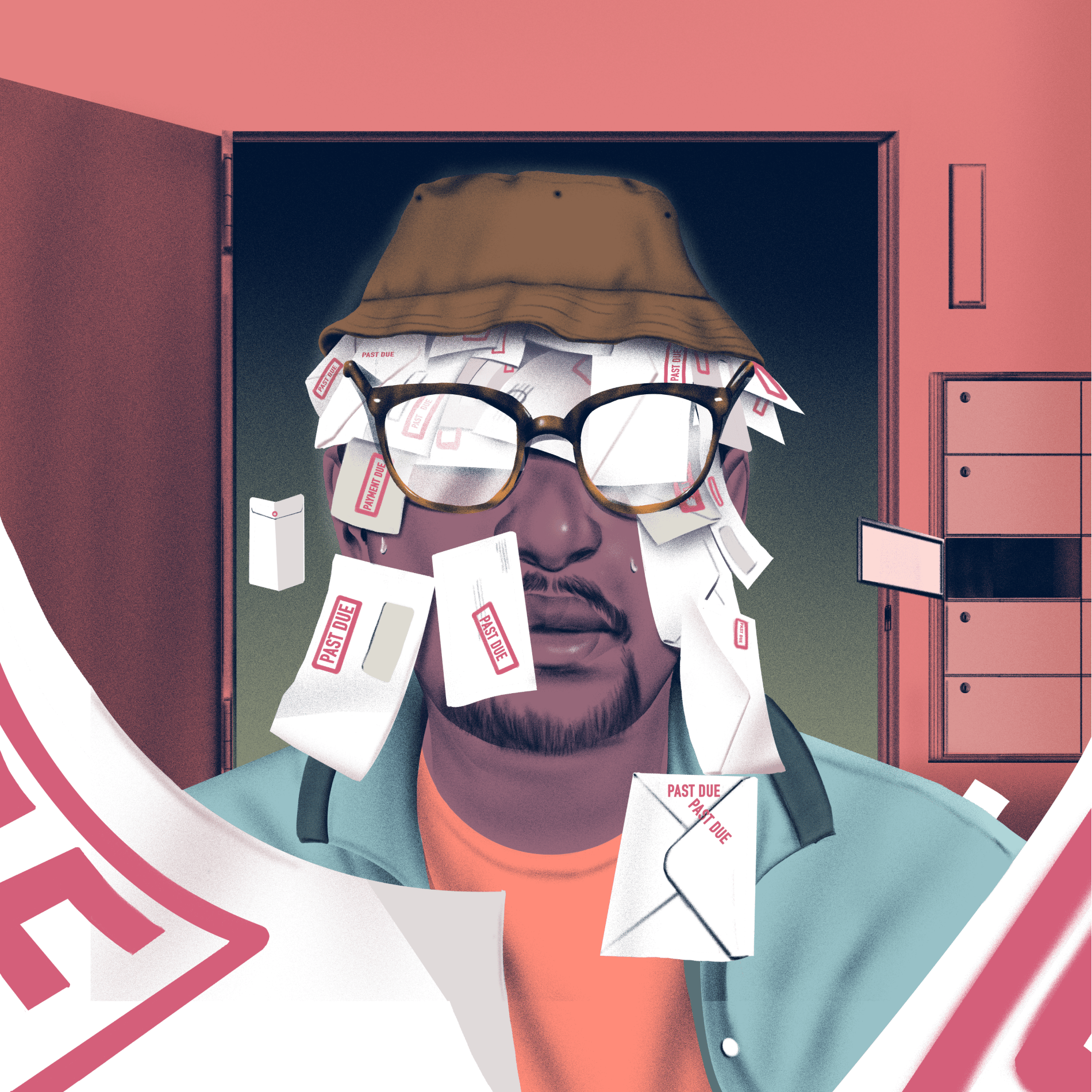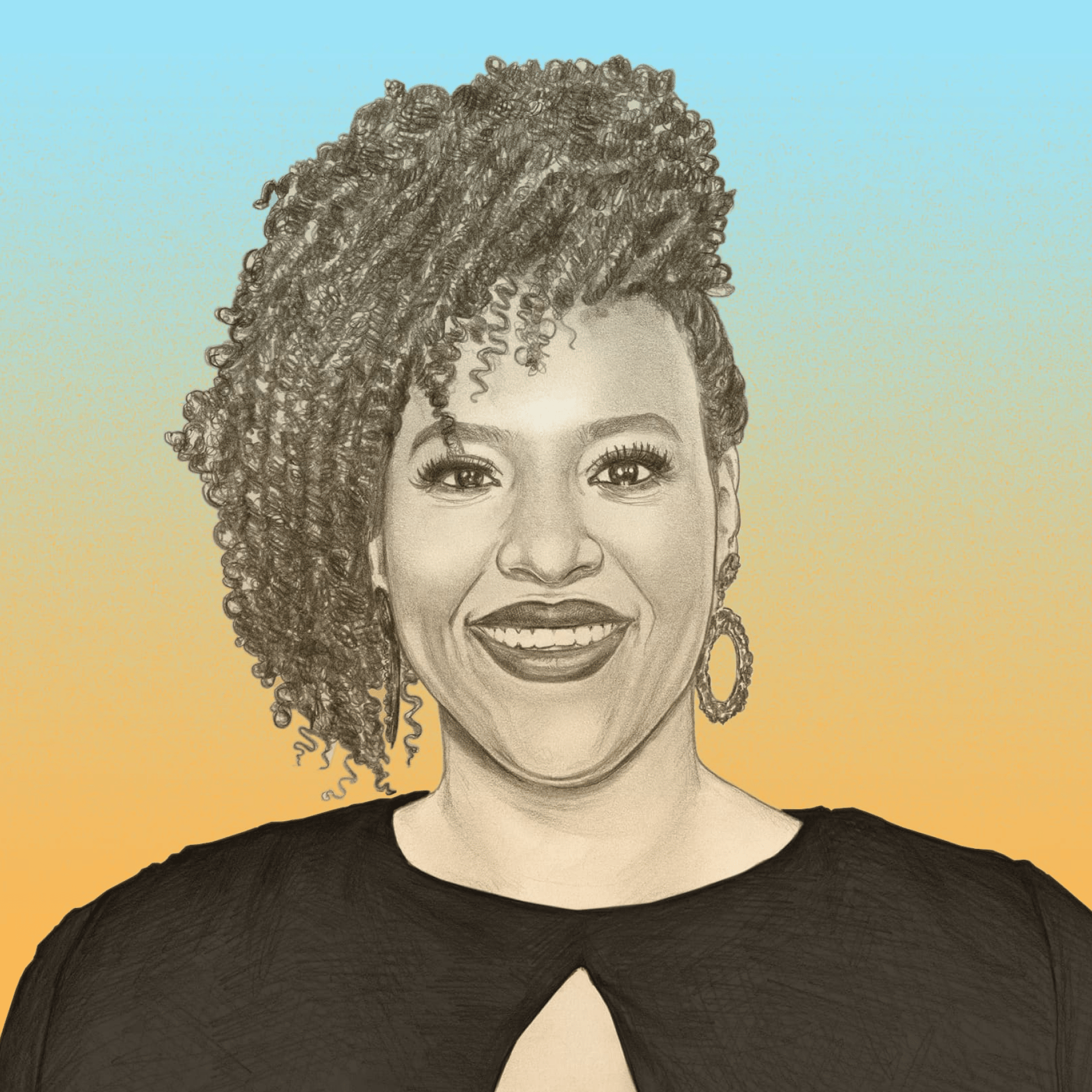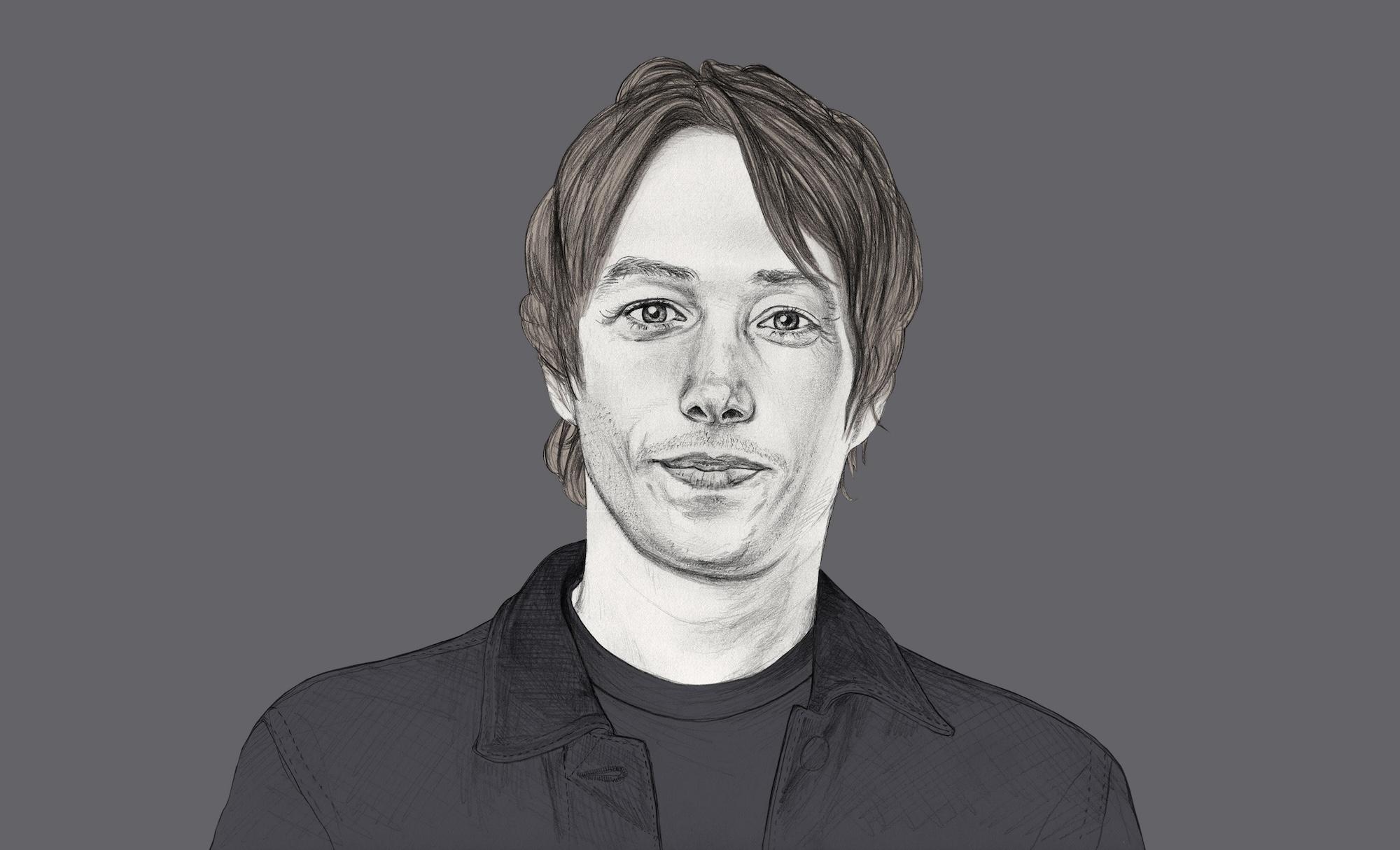
Money Diaries
Making It in NASCAR as a Woman Doesn’t Mean the Struggle Is Over
Julia Landauer is one of the most exciting young race car drivers in America. She tells us how the economics (and gender issues) of NASCAR work.
Wealthsimple makes powerful financial tools to help you grow and manage your money. Learn more
Wealthsimple is a whole new kind of investing service. This is the latest installment of our recurring series “Money Diaries” where we ask interesting people to open up about the role money has played in their lives.
In NASCAR, the top tier is called the Monster Energy NASCAR Cup Series. That’s the place where the drivers you've heard of race. It’s where you can make millions of dollars. I’m climbing my way toward there, but right now I’m in the K&N series — which is a few tiers below. But the economics are vastly different. You have to use your own money to race. There's prize money, but it doesn't even cover the entry cost. I dated a guy who raced motorcycles professionally. I was trying to get into K&N at the time, and he was astounded by the economics. He couldn't imagine having to pay to race. In motorcycles you have a salary — and if you don't have a salary, then your team is covering all your costs.
Everyone is either working another job or being taken care by their parents or something.
I decided when I was 10 years old that I was going to race professionally. It was my dad’s idea to get us into it. We grew up in New York City, but had a country house out in New Jersey with a long driveway and he bought us this red, two-seat go-kart. I was 8 and my sister and brother were 6 and 3. As he likes to tell it, I was immediately good at driving fast and they couldn’t get me off the thing. It wasn't long before we were all racing go-karts at a track about 45 minutes away. I haven’t stopped since.
You couldn’t pick a more expensive sport to get into than racing. But I like to remind my dad that it's his fault for getting us into it! My parents were our coaches, mechanics, and financial backers. They could afford to pay for the karts and tires and track fees. But they made us learn how to replace parts and clean motors, and we all loved it. In 2008, we actually won the World Karting Association Family of the Year award.
When I told my parents that I'd decided to become a professional race car driver — at twelve years old — they indulged me. They probably thought I’d outgrow that crazy notion. But I didn’t, and when I turned 13 I was finally old enough to go to the Skip Barber Racing School and switch to driving proper cars, at much higher speeds.
The finances of it all changed dramatically.
There are plusses and minuses to being a woman in a sport dominated – really dominated – by men.
I still remember my parents sitting me down and having the financial conversation with me that year. They said they'd continue to support my racing, but that if I really wanted to stick with it, I was going to have to find some way to help pay for it. That meant chasing sponsors.

Sign up for our weekly non-boring newsletter about money, markets, and more.
By providing your email, you are consenting to receive communications from Wealthsimple Media Inc. Visit our Privacy Policy for more info, or contact us at privacy@wealthsimple.com or 80 Spadina Ave., Toronto, ON.
A year later, I was 14 and I became the first female to win a Skip Barber series in the 31-year history of the organization.
There are plusses and minuses to being a woman in a sport dominated – really dominated – by men. Specifically white men. On one hand, I wouldn’t be doing the thing you’re reading right now if I was a guy. People are interested in me, and that’s an advantage. Now, when I race, I’m often racing 16, 17, 18 year old boys. And I'm a 25-year-old woman — they just don't quite know what to do around me. So that can kind of give me the upper hand. But it has its disadvantages, too, its extra little challenges.
Here’s an example. In the K&N series, we have people who are called spotters. They sit up high in the booth and try to make sure we don't hit anything. Last year, my spotter was a former champion from the series. He knew it inside and out. We got off to a rocky start. He wasn't giving me a lot of feedback that would help me drive better. It turned out he was worried about offending me. So I told him: be aggressive, tell me what I’m doing wrong.
So eventually, my spotter realized something about the way people race me. It came from the fact: no one wants to get beat by the girl. Off the track? People are really respectful and they understand I'm a great racer. But on the track? They really don’t want to lose to me. And they’ll race differently. They’ll make it that much harder for me to pass them. They will be a little dirtier.
I remember at one point I had some cosmetic damage on the car and my team owner was like, "You've got to stop denting up the front of the car." And I said, "I have to defend myself." That’s when my spotter said, "I've never seen anyone race someone as hard as they race with her. They’re blocking her. She has to move around more to get by."
And it turned out he'd heard other spotters who were like, "Don't let that bitch pass you. Don't let her do it!" So these kids, they're getting all this really awful sexist feedback. Which in itself is crazy.
Most young racers are home-schooled and spend their every free minute at a track. But I decided I would use Stanford to make connections and develop myself into a more marketable entity.
My spotter respects me. He has a six-year-old daughter and so he really bought into what I stand for. But he still told me, "I would do the same thing. I wouldn't want to get passed by you." So that’s what I mean by it’s a cultural thing.
Back when I was 18, I got accepted to Stanford, and I promised my parents I’d go to college for at least a year. If I could convince someone to pay for my racing after that, they said, they’d be okay with me dropping out. But only in that case. Most young racers are home-schooled and spend their every free minute at a track. But I decided I would use Stanford to make connections and develop myself into a more marketable entity. It really paid off and I stayed four years.
Recommended for you

It’ll Work Itself Out (It Actually Won’t)
Money Diaries

Natasha Rothwell's Character in “The White Lotus” Finds an Angel Investor. Her Real Life Didn't Quite Work That Way.
Money Diaries

To Win Four Oscars, Sean Baker Had to Go Broke Again and Again
Money Diaries

Love and Crypto: The Hackatao Story
Money Diaries
Meanwhile, in my racing career, I was pretty aggressive chasing money. And I knew that to get sponsorships I needed to gain exposure. So I tried out for Survivor, and three years ago I made the cast. I was 21. I failed miserably, and ended up with nine minutes of air-time. But I did get a nice parting gift — a not insignificant amount of money that I’m contractually prohibited from disclosing. Let’s just say that it was enough to pay for most of my 2014 racing. My parents, as always, made up the difference.
Racing is incredibly expensive, and a very small percentage of the people who do it make a living doing it. My parents have helped me throughout most of my career. But it’s never been a blank cheque. They would tell me before a season what their budget was. I remember I had to negotiate with my team owner to get the car rental fee to something I could afford. In 2015, I spent weeks running an Indiegogo campaign to raise $11,000 to pay for travel and supplemental costs.
That was a huge season for me. It’s what got me noticed and ultimately into the K&N series, which is the fourth tier of NASCAR. A team out in California affiliated with Toyota offered me a partial sponsorship for a full season. But racing in K&N is way more expensive. It’s $400,000 to $500,000 to run a season, and while I’m not allowed to disclose the amount of my sponsorship, my parents still had to bring quite a bit to the table last year. Which they did, because this was big, a level of racing at which (in theory) sponsors should finally get interested.
Sports are the one arena where we’re encouraged to go kick ass and be aggressive instead of going for “pretty.”
It went really well. I finished fourth, which was the highest finish by a woman in the 62-year history of the series. NASCAR noticed and made me one of the 11 drivers in the 2016-2017 Next program, which identifies the most promising up-and-coming drivers in the lower series.
One thing I said in my TedX talk was that women are portrayed as fragile — people say we're fragile and, physically, we can't do shit. To this day that is the most offensive thing to me. It totally discredits women. I've heard mothers say to their daughters, "I'd never let my daughter do that." They don't say their kid, they say their daughter. But sports are the number one thing that help women maintain confidence as they grow. Sports are the one arena where we’re encouraged to go kick ass and be aggressive instead of going for “pretty.”
I moved to Charlotte, North Carolina because it’s the epicenter of stock car racing, and spent the first 6 months in an unfurnished apartment north of the city that cost $900 a month. I moved four times over the next two years, never paying more than that and often paying less, as low as $500 for a room in a house with three other women I found on Craigslist. That taught me that I can’t share a house with three women.
I met my current boyfriend, Vince, during that period and a few months ago, he got a good job out in Asheville, so we moved out there together into a sweet, two-bedroom house for $1,250 a month. We have land, we have privacy, we have natural light, we have central air. Our quality of life is pretty awesome. The only downside is that we don’t have a dishwasher, which is a pain in the ass, but we’re on a budget.
I said that for most people in racing you need another job. For me, my other job is speaking. Right now, speaking is paying all my bills. Back in my senior year at Stanford, I was invited to give a TedX talk about being a woman in racing. That talk went really well. At first, I did a bunch of volunteer speeches just to pad my resume. Then a women’s conference called and asked what my fee was. I had no idea. I asked for $1,500 for 10 minutes. The woman said yes super quickly so I thought, ‘Shit, I definitely undersold myself.’ Later, I asked if I had undervalued myself. They told me they we would have paid me double.
Right after, I signed with a boutique New York City firm called Gotham Artists and my fee jumped pretty quickly — which it had to because they take 20% to 30% of the fee. They got me up to $5,000 and told me I needed to come up with a 45-minute keynote so that we could charge even more. Once I had that, I could ask for $7,000 to $8,500. I just booked my first five-figure fee, for a talk in February.
I’ve learned not to be afraid to ask for money. I’ve also learned to say no. One group recently asked me to speak but said that they didn’t normally pay. So I politely declined. Then they called back to say that they actually could afford to pay. Sometimes you gotta play hardball.
A few years ago I pitched a makeup company. I didn’t get any money, but I got a meeting and they gave me $500 of swag in a gift bag. I still use that.
Last year I got pretty close to what most people would consider a normal salary out of college. This year I definitely did. It more than pays for my living costs, and I put anything extra directly into my business, Julia Landauer Racing. Over the past year, I’ve put tens of thousands of dollars in there.
My life is cheap. I haven’t taken a vacation on my own, ever. We cook almost every night, and rarely go out. My expenses are gas — basically, getting to Charlotte airport from Asheville — groceries, and insurance. My big splurge was a car wash membership for $30 a month. Vince disapproves of it so much. He’s like, “We have a hose!” Occasionally I invest in clothing because my image is important. I have a stylist (AZSN Studios) on retainer that costs me a few thousand dollars a year and it’s absolutely worth it. But I’m not splurging on gowns. When it comes time to actually buy something nice I try to buy used, or use Rent The Runway. The last NASCAR banquet, I spent $120 for my dress, purse, jewelry. I even borrowed a dress from a high school friend for an event last year. It was the dress that she wore to junior prom! And I never buy makeup. A few years ago I pitched a makeup company. I didn’t get any money, but I got a meeting and they gave me $500 of swag in a gift bag. I still use that.
On the racing side, I’m very careful. I have pro deals with some companies like Simpson now, so that I pay something closer to wholesale — a $2,000 carbon fiber helmet, say, might cost me half that. And I take care of my things. I could get a new $1,500 helmet every year, or I could use that for two flights to California. One thing is clear: My parents are done paying for racing. They have told me explicitly that they’re not paying more next year. “We have to retire at some point,” they said.
I also can’t justify putting any more money into K&N. I can’t progress there. We don’t have live pit stops. It’s a different tire compound. If I’m going to make it, I need to move up to the Camping World Truck Series — the next tier. That’s a big jump. You really need $3.5 million to do a full season, and it could be up to $5 million.
I have a manager now, and he’s talking to some very big companies about sponsorship. There are some promising things on the horizon. We’re going to need more sponsors to actually get me into the truck series.
I’m not willing to bet my life that I’ll get the money to race a full season next year. That’s 23 races. I could do a partial season, between 6 and 13, as a step toward doing a full season in 2019, and then hopefully move up from there. But I know: if it doesn’t happen soon, it’s not happening.
As told to Josh Dean exclusively for Wealthsimple. Illustration by Jenny Mörtsell. We make smart investing simple and affordable.
Wealthsimple's education team is made up of writers and financial experts dedicated to making the world of finance easy to understand and not-at-all boring to read.





